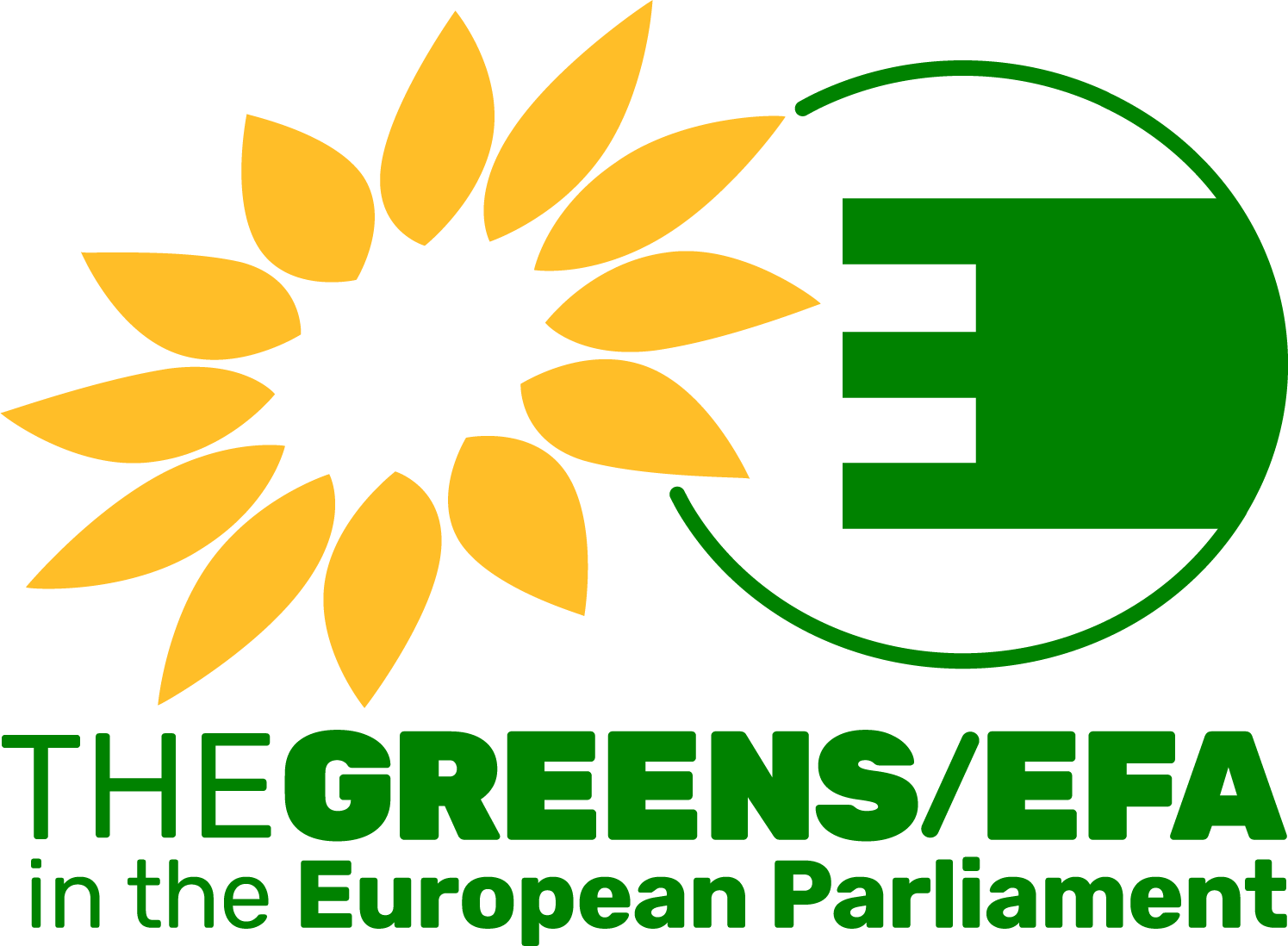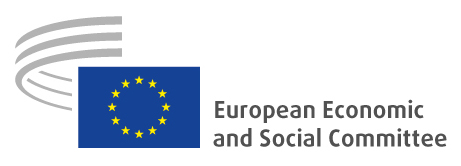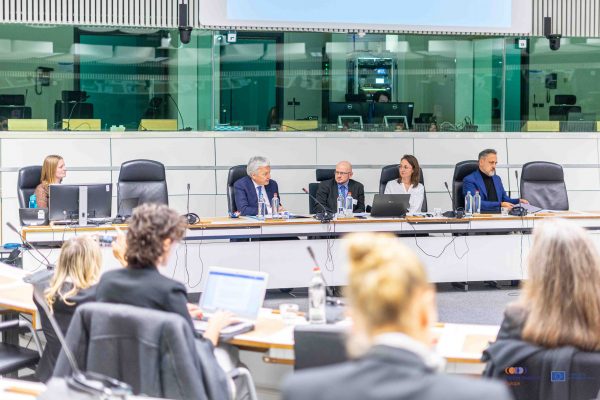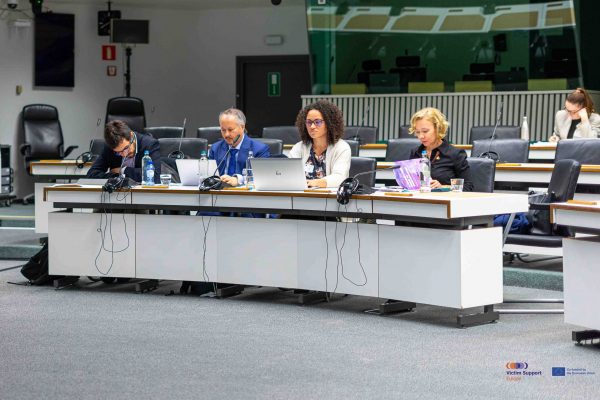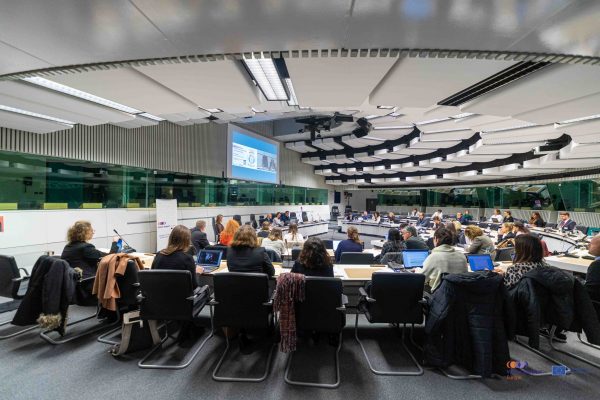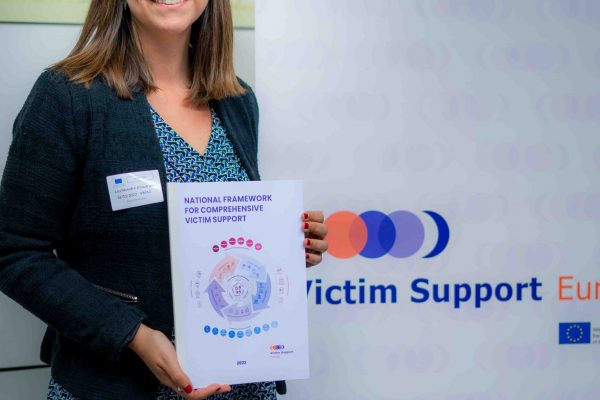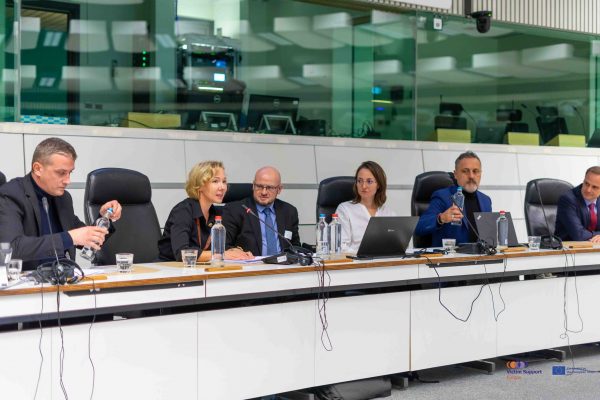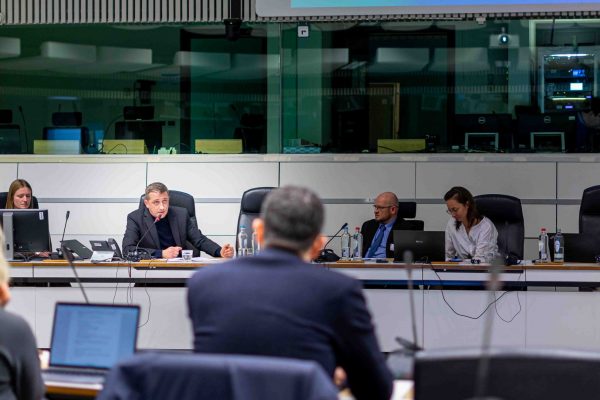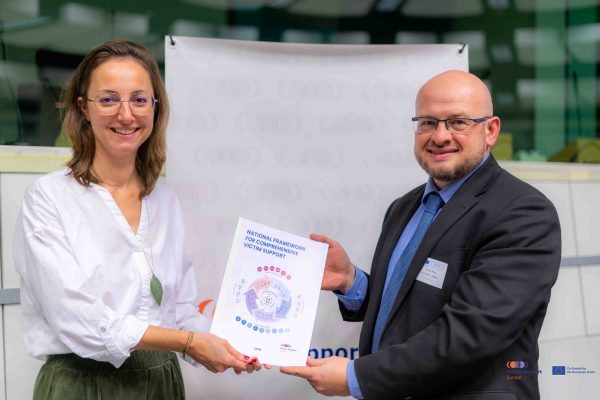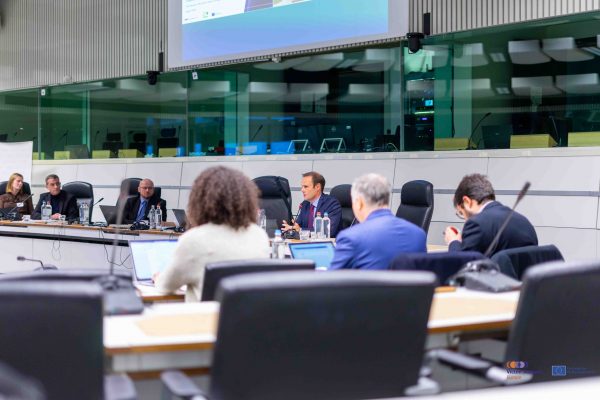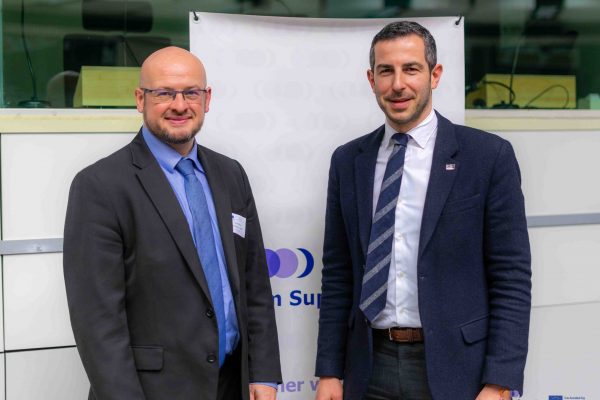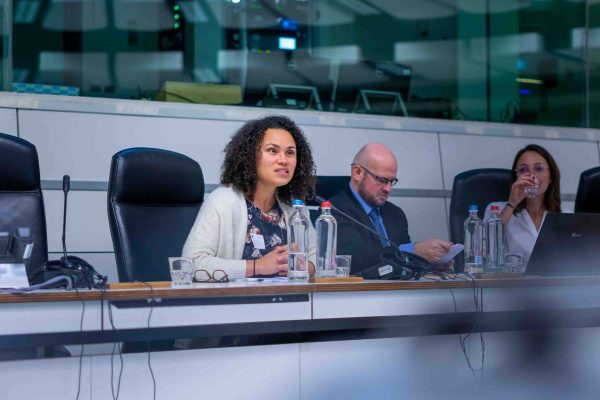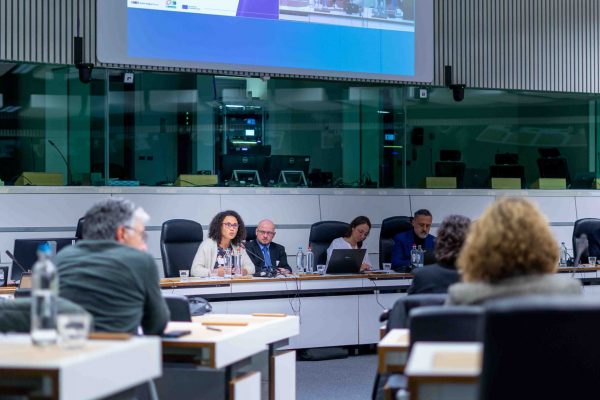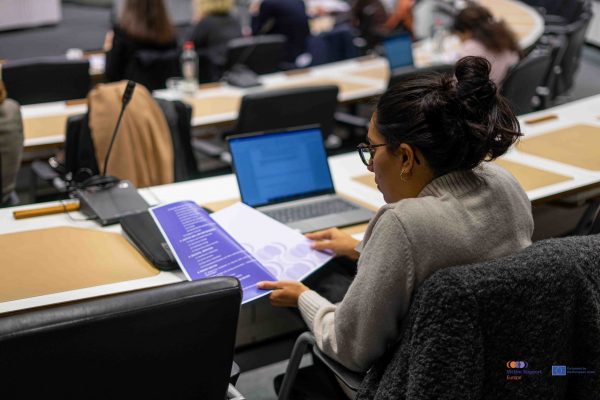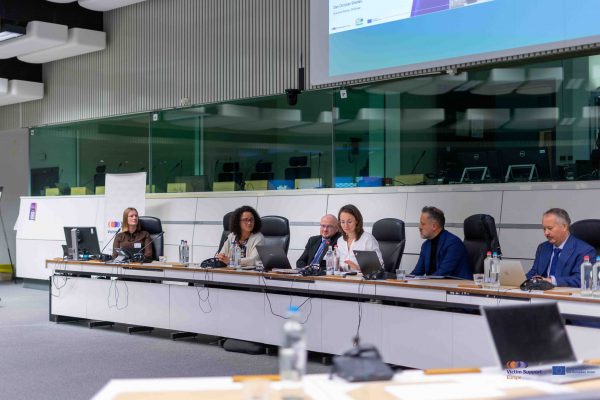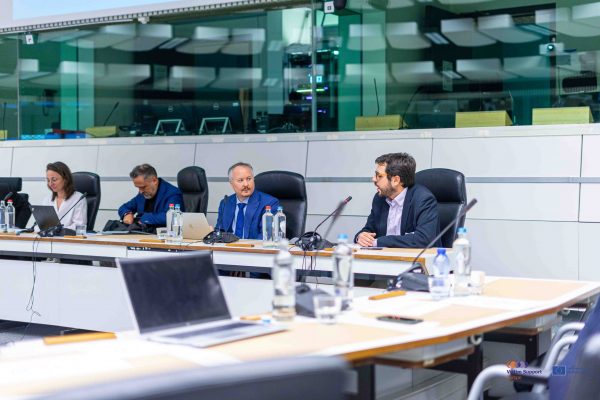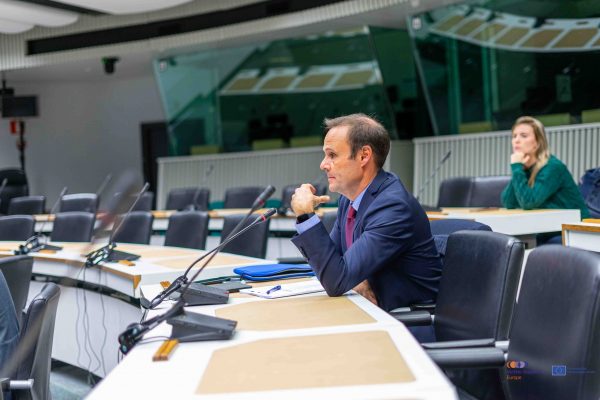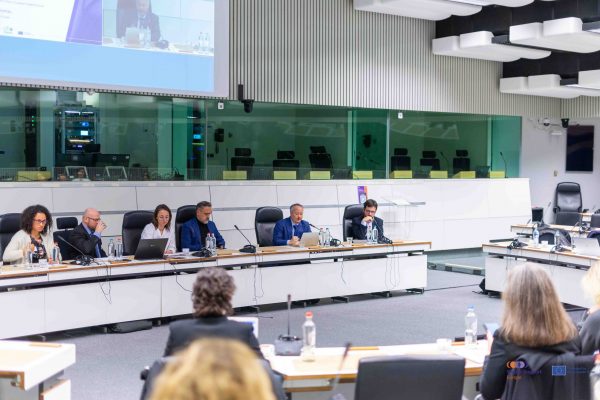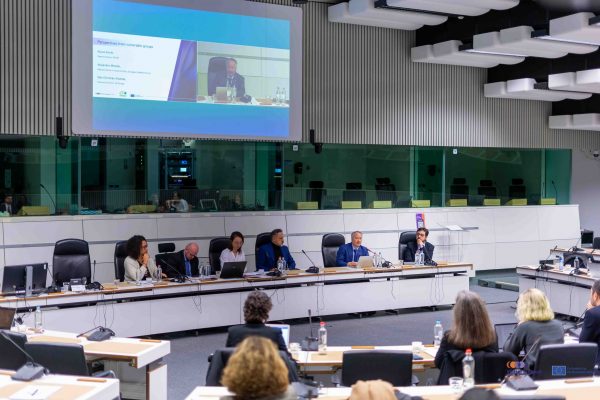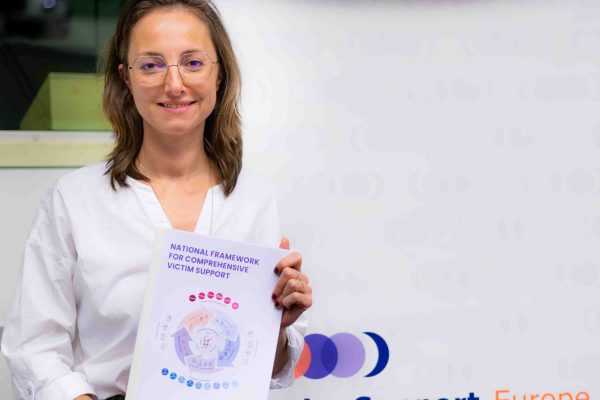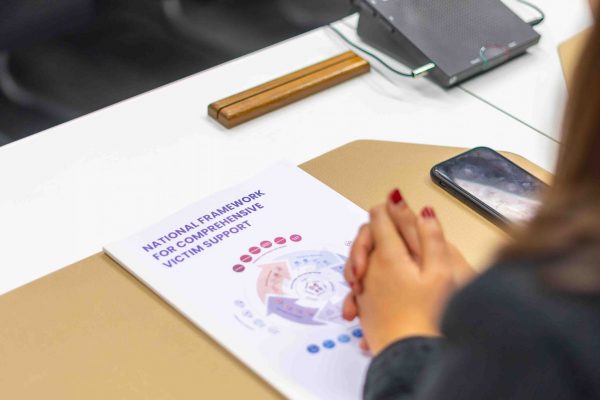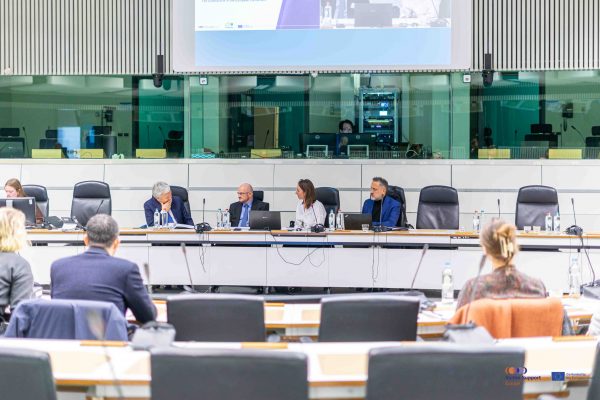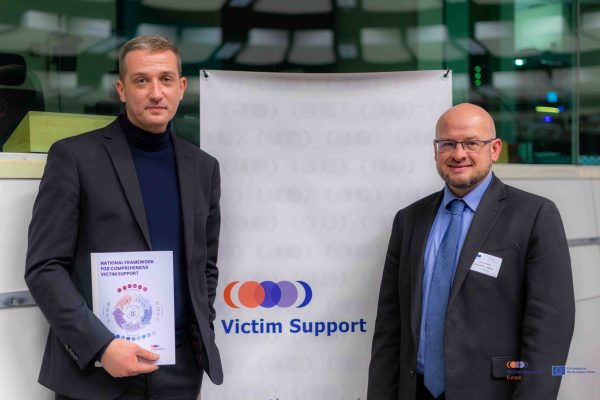On 16 November, Victim Support Europe and Saskia Bricmont co-hosted an event on the “Vision for a revised Victims’ Rights Directive” to officially launch the new policy paper the “National Framework for Comprehensive Victim Support”; a testament to how practice- and evidence-based policymaking is driving improvements to the victim support system in Europe.
Given that the European Commission has announced a possible proposal for a revision of the Victims’ Rights Directive by March 2023, we believe it is key to seize the momentum to raise awareness and debate on this topic. This revision is indeed essential because it has the power to strengthen existing rights, establish clearer obligations for Member States and new rights for victims.
The event aims to exchange on the way forward for the European Commission’s proposal on the Victims’ Rights Directive, and how the European Parliament can strengthen the text in its legislative process. It also has the objective to discuss the challenges and opportunities to have a comprehensive and effective Victims Rights Directive.
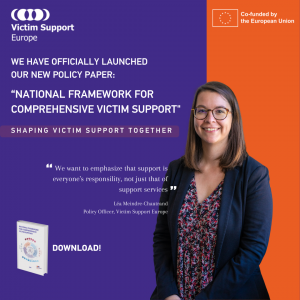 As we look forward to this EU action, Victim Support Europe (VSE) is calling for a step change in the way we address victims rights.
As we look forward to this EU action, Victim Support Europe (VSE) is calling for a step change in the way we address victims rights.
We need a long term, strategic and systemic approach to all the rights established for victims. This means in particular that in addressing victims’ need for support, it is not enough to think about the operation of individual and disparate support organisations. Rather, every country must approach this from the perspective of national support framework.
To reinforce these ambition, Victim Support Europe (VSE) will present its new policy paper ‘National framework for Comprehensive Victim Support’, which aims to change the way we perceive engagement and actions for victims from a silo approach with each organisation operating in single sphere and single perspective, to one where every entity that comes into contact with victims does so from a victim-centred, human rights perspective. We will put this research piece forward not as a criticism of what is in place, but to show what opportunities exist to improve the EU support system even further.

